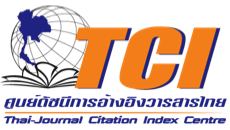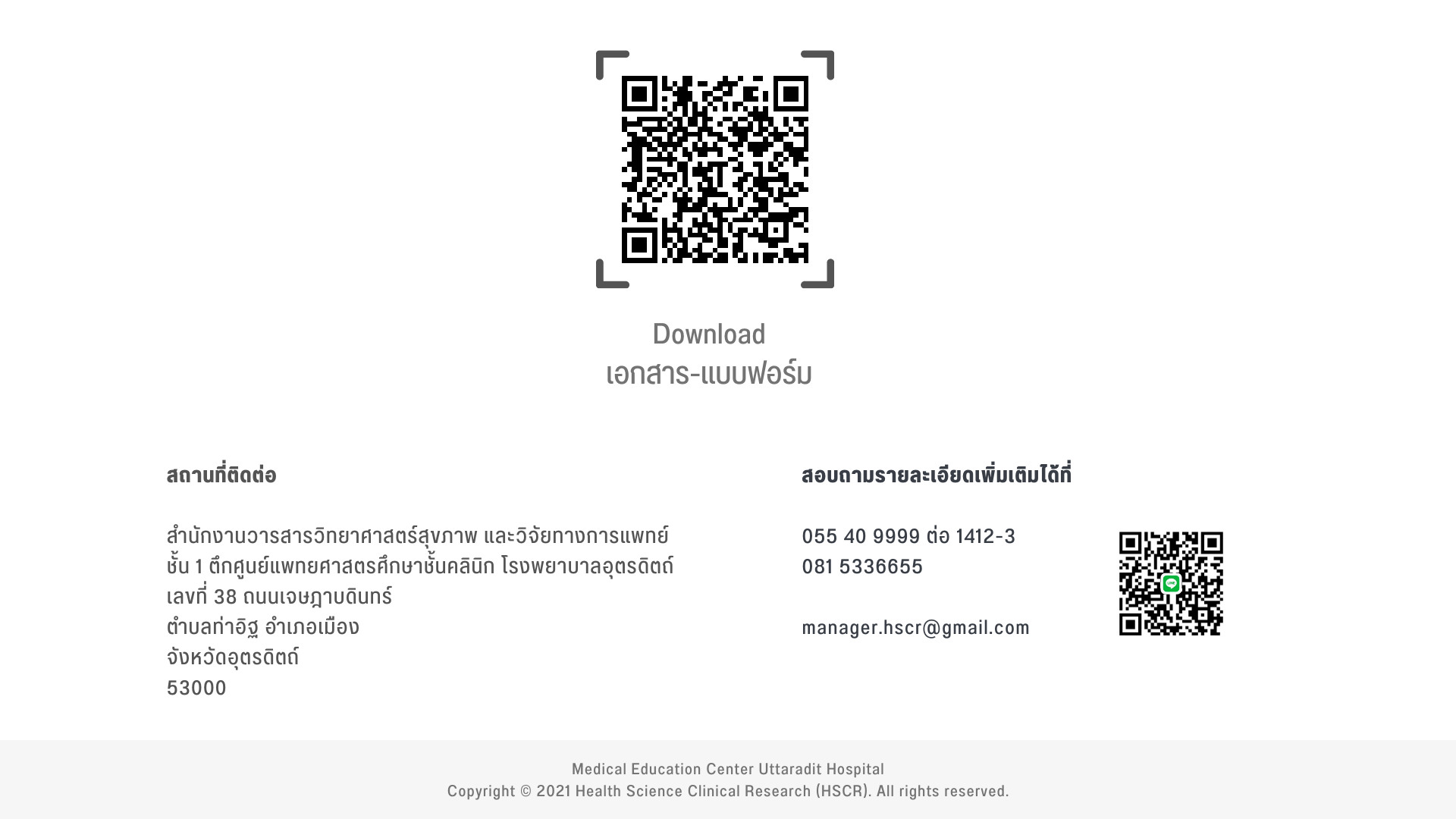The role of community nurse for community strength The older adults in community
DOI:
https://doi.org/10.1016/hscr.v39i2.270287Keywords:
The Role of Community Nurse, Community Strength, the Older Adults in CommunityAbstract
Objective: To explain the situation of the elderly in Thailand, including the impacts of becoming an
aging society, the meaning of strong communities, strategies and methods for strengthening communities, and the role of nurses in developing strong communities for elderly care.
Methods: Collection and analysis of knowledge from documents and related research, synthesizing the economic and social impacts of increasing elderly population, presenting perspectives on how strong communities can help care for the vulnerable elderly group, including the role of community health nurses in elderly healthcare.
Results: The global and Thai elderly population situation in the 21st century is moving towards ecoming a complete aging society, with decreasing children and working-age population resulting in reduced workforce proportion. This causes the working-age population to bear an increasing burden of elderly care. The elderly should receive care that matches their true needs and problems, aligning with their social and cultural context, enabling them to live safely with their communities and families while maintaining good quality of life. Community nurses are healthcare personnel who have the most opportunities to work closely with elderly residents in communities, having information about their home living conditions and holistic health status. When nurses utilize their role to promote community strength, it enhances community potential in various aspects, including increasing community members’ capabilities, promoting leadership, utilizing community resources effectively, and integrating relevant agencies to ensure good health and quality of life for the elderly.
Conclusions: Community nurses are a key part of the healthcare team, closely connected to and highly accessible within the community. They play a crucial role in strengthening community resilience by enhancing people’s capabilities, managing chronic health conditions, and utilizing community resources efficiently. Additionally, they collaborate with leaders and networks to improve the quality of life for community members
References
Atsalikorn W, Jainaen M, Vinijkul R. Guidelines for the management of community business model for elderly care: Muang Municipality, Kamphaeng Phet Province. Phikun Journal Faculty of Humanities and Social Sciences Kamphaeng Phet Rajabhat University. 2023;21(1):63–76.
Boonmak N, Manmek B, Wongsawa C. Quality of life development of elderly in Phraeksamai Town Municipality, Mueang District, Samut Prakan Province. Journal of Spatial Development and Policy. 2024;2(3):13–26.
Chaisang U, Chaisang N, Cheadae A. Psychological well-being: Concepts and guidelines for promoting the elderly in the Southern border context. Academic Journal of Community Public Health. 2023;9(3):9–18.
Department of Older Persons. Situation of the Thai elderly 2023 [Internet]. 2023 [cited 2024 Dec 16]. Available from: https://www.dop.go.th/th/statistics_page?cat=1&id=2
Isariyanon M, Silakorn S, Isariyanon S. Roles and mechanism for driving towards an empowered community of Khlong Mai Sub-District Community Organization Council, Sampran District, Nakhon Pathom Province. Journal of Humanities and Social Sciences Nakhon Pathom Rajabhat University. 2021;12(1):99–112.
Jahnke I, Riedel N, Popescu M, Skubic M, Rantz M. Social practices of nurse care coordination using sensor technologies: Challenges with an alert system adoption in assisted living communities for older adults. International Journal of Nursing Sciences. 2021;8(3):289–97.
Jensantiku N. Quality of life of the elderly: Situations and social welfare approach in Thailand under social change. Public Administration Association of Thailand Journal. 2020;2(3):15–26.
Junthothai D. Ageing society management: Lessons learned from Japan. The Journal of Law, Public Administration and Social Science, School of Law Chiang Rai Rajabhat University. 2020;4(1):159–82.
Kaewjanta S, Ngoenngam P, Chaiwong N, Wiriya S, Kamsua P. Factors promoting the provision of health care services for the elderly in the community with knowledge of traditional Thai medicine: Case study of Bunrueang Subdistrict Municipality, Chiang Khong District, Chiang Rai Province. Journal of Environmental and Community Health. 2024;9(2):195–204.
Kaewkosaba S, Uthaihom D. Using the service quality model for health tourism entrepreneurs to support completed-aged society. Journal of Social Sciences in Measurement Evaluation Statistics and Research. 2023;4(1):13–24.
Kultawatwong S, Koonsorn S. The development of elderly’s life quality on self-dependence by the philosophy of sufficiency economy: A case study of Loei Province. Santapol College Academic Journal. 2022;8(1):149–58.
Mantra R, Yakampom V, Nreemprem S, Sriburin K. The management pattern for revenue-generating activities to enhance the economic value to the elderly in Chonanbot Municipality, Chonnabot District, Khon Kaen Province. Research and Development Journal Loei Rajabhat University. 2021;16(56):22–30.
Nakkanrian M, Kinasen W, Nakkanrian B, Saramart C. Strengthening family relationships according to Buddhist principles in the New Normal Era. Journal of Scholar Community. 2023;1(1):96–110.
Onthaisong C, Sornkla K, Suebsun S, Promsuan W. The preparation for entering the aging society of the population in Mueang District, Surin Province. Journal of Nursing and Health Care. 2020;38(2):53–62.
Phattharasirisomboon P, Bunyanuson T, Heakham N, Phuchongchai T. The level and factors related to preparation for entering a high-quality elderly society among the pre-aging population in Mueang District, Chaiyaphum Province. The Public Health Journal of Burapha University. 2023;18(2):1–16.
Phetlomthong K, Eamsakul S, Rojanatrakul T. Self-reliant sustainable community building process. Journal of Roi Kaensarn Academi. 2021;6(12):335–68.
Pipatwarodom R, Jumpang T. Operation and key success factor in the operation of the elderly club in Napa District Municipality, Muang, Chonburi. Journal of Environmental Education Medical and Health. 2024;9(2):514–24.
Ponkla P, Pornying J. Legal development in elderly occupational fund and self-reliance. Journal of Politics, Administration and Law. 2023;15(2):305–16.
Prakotasang T, Jintalikhitdee V. Leadership and community strength in preparing local development plans: A case study of Banbo Subdistrict Administrative Organization, Mueang Samut Sakhon District, Samut Sakhon Province. Journal of Humanities and Social Sciences, Suan Sunandha Rajabhat University. 2022;5(1):29–39.
Siri S. Preparation for entering the elderly society of people in Phetchabun Province. Journal of Interdisciplinary Innovation Review. 2022;6(1):167–76.
Supakitpaisan K. Ideal paradigm of community welfare management under the social capital concept. Journal of Social Work. 2023;31(1):1–46.
Thongtumluing K. Home economics and quality of life development of the elderly. Journal of RoiKaensarn Academi. 2021;6(12):369–86.
Vitthayaphum N. Development of hospice care at home model, Wanonniwat Hospital, Sakon Nakhon Province. Science and Technology to Community. 2024;2(4):30–44.
Whangmahaporn P. Education-based intergenerational project for Thai elderly’s social participation activities. Journal of Management Science Sakon Nakhon Rajabhat University. 2024;4(1):1–12.
Yamsrisuk C. The enhancement of network in Lampang Elderly School. Phuket Rajabhat University Academic Journal. 2020;16(2):19–30.
Yi YM, Park YH, Cho B, Lim KC, Jang SN, Chang SJ, et al. Development of a community-based integrated service model of health and social care for older adults living alone. Int J Environ Res Public Health. 2021;18:825. doi:10.3390/ijerph18 020825.
Downloads
Published
How to Cite
Issue
Section
License
Copyright (c) 2024 Health Science Clinical Research

This work is licensed under a Creative Commons Attribution-NonCommercial-NoDerivatives 4.0 International License.
The names and email addresses entered in this journal site will be used exclusively for the stated purposes of this journal and will not be made available for any other purpose or to any other party.











